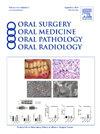The use of artificial intelligence (AI) in interproximal decay detection
IF 2
3区 医学
Q2 DENTISTRY, ORAL SURGERY & MEDICINE
Oral Surgery Oral Medicine Oral Pathology Oral Radiology
Pub Date : 2025-02-04
DOI:10.1016/j.oooo.2024.11.023
引用次数: 0
Abstract
Objective
Untreated caries are a prevalent health condition worldwide. Management of caries includes preventive and restoring teeth and function when necessary. In recent years, significant progress has been made with the introduction of artificial intelligence algorithms in dentistry, which includes diagnosis of incipient and advanced carious lesions. The objective of this study is to determine the sensitivity and specificity of Overjet Caries Assist (OCA), a radiologic automated concurrent read computer-assisted detection software, on incipient enamel and dentinal caries.
Study Design
In total, 1142 proximal surfaces were assessed in 200 bitewing images by an oral radiology resident and a calibrated dental student. The presence of incipient decay was recorded and then OCA was used. Caries successfully identified by the software, incorrectly identified, and missed lesions were recorded. The same process was then performed on 535 proximal surfaces in 50 bitewing images, and the presence of dentinal decay was recorded and the same recording process above was repeated. Sensitivity and specificity calculations were performed.
Results
The data revealed a sensitivity of nearly 70% for incipient caries and a specificity of approximately 98%. The sensitivity of dentin caries was found to be nearly 94%, with a specificity of 97%.
Conclusion
In general, human sensitivity of detection of proximal carious lesions ranges from 24% to 43% and specificity is 89% to 97%. Our results indicate that OCA is overall accurate, with greater sensitivity and specificity on proximal carious lesions and markedly high sensitivity for dentinal lesions. Artificial intelligence models have the ability to provide a reliable tool in assisting in the diagnosis of caries.
求助全文
约1分钟内获得全文
求助全文
来源期刊

Oral Surgery Oral Medicine Oral Pathology Oral Radiology
DENTISTRY, ORAL SURGERY & MEDICINE-
CiteScore
3.80
自引率
6.90%
发文量
1217
审稿时长
2-4 weeks
期刊介绍:
Oral Surgery, Oral Medicine, Oral Pathology and Oral Radiology is required reading for anyone in the fields of oral surgery, oral medicine, oral pathology, oral radiology or advanced general practice dentistry. It is the only major dental journal that provides a practical and complete overview of the medical and surgical techniques of dental practice in four areas. Topics covered include such current issues as dental implants, treatment of HIV-infected patients, and evaluation and treatment of TMJ disorders. The official publication for nine societies, the Journal is recommended for initial purchase in the Brandon Hill study, Selected List of Books and Journals for the Small Medical Library.
 求助内容:
求助内容: 应助结果提醒方式:
应助结果提醒方式:


